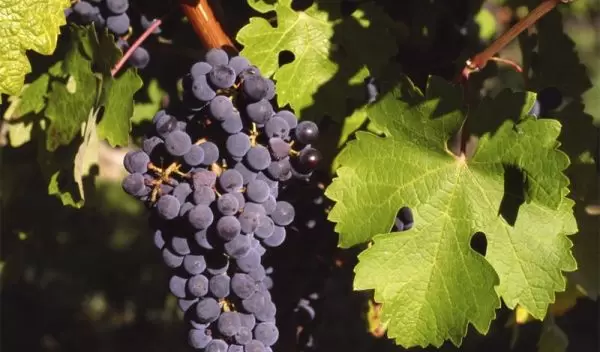
Early detection of soil-surface ozone helps prevent damage to grapevines and apple trees
Farmers and fruit growers are reporting that climate change is leading to increased ozone concentrations on the soil surface in their fields and orchards, an exposure that can cause irreversible plant damage, reduce crop yields and threaten the food supply, say materials chemists led by Trisha Andrew at the University of Massachusetts Amherst.
Writing in Science Advances, first authors Jae Joon Kim and Ruolan Fan show that polymer "tattoos" on plant leaves can allow growers to accurately detect and measure ozone damage, even at low exposure levels.
The resilient polymer tattoos placed on the leaves allow for "frequent and long-term monitoring of cellular ozone damage in economically important crops such as grapes and apples," Andrew says.
"We selected grapes (Vitis vinifera L.) as our model plant because the fruit yield and fruit quality of grapevines decrease significantly upon exposure to ground level ozone, leading to significant economic losses," state the scientists.
Ground-level ozone can be produced by the interaction between the nitrates in fertilizer and the sun, for example, but can be mitigated by early detection and treating the soil surface with charcoal or zeolite powders.
The U.S. National Science Foundation-funded scientists hope their invention will be used by farmers and fruit growers who could place a few "reporter plants" among crops to periodically monitor soil ozone levels.
"This clever application is important because the sensor detects ozone at low exposure levels before it causes irreversible damage and the decreasing yield of important food crops," says George Janini, a program director in NSF's Division of Chemistry.
The sensor "gives you a picture of what is going on in your soil," Andrew says. "You can be alerted if the fertilizer level is wrong, for example. That often happens, especially with food crops that need a lot of sun and fertilizer to produce, like melons, grapes and orchard fruits."


